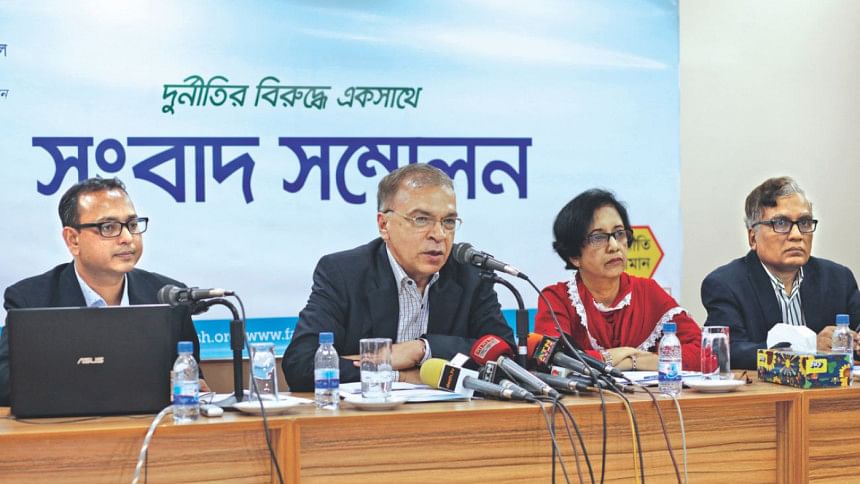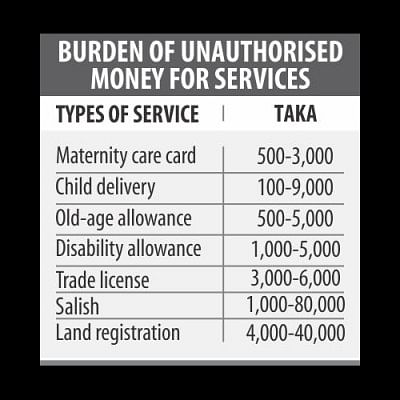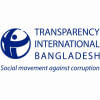Unfairly treated for ethnicities


The Dalits and indigenous communities of the plain lands in Bangladesh face widespread socio-economic discrimination because of their identities, says a study conducted by Transparency International Bangladesh.
The study claimed the situation to be a sharp contradiction to the constitution of Bangladesh that provides equal opportunities for all, irrespective of religion, community, ethnicity, and gender.
“It's very saddening. This is not supposed to happen in Bangladesh as the country was created against the backdrop of deprivation and repression of Bangalees due to their ethnicity,” said Dr Iftekharuzzaman, executive director of the TIB.
The findings of the research titled “Indigenous and Dalit Peoples of Bangladesh: Challenges and Way Forward for Inclusion in Rights and Services” were presented yesterday at a press conference by TIB Senior Programme Manager Abu Said Md Juel Miah.
The study was conducted in 28 upazilas between February 2018 and February 2019, focusing on the experience of indigenous and Dalit communities in the plains.
EDUCATION
The TIB found indigenous and Dalit students were denied admission in some government primary schools. It also found that Dalit students were not taught their own religious studies and compelled to sit for classes and tests with the students of other mainstream religions.
Moreover, they are not taught in their mother tongues, which poses risks for the existence of their mother languages, said Juel Miah.
The concept of “untouchability” is practised in educational institutions. There are examples where teachers did not even take initiatives to ensure inclusive environment in schools.
“The information about stipends allocated for indigenous and Dalit students are not properly circulated. Moreover, there are examples of anomalies that take place during the enlistment and distribution of the stipends,” Juel said.
HEALTHCARE
The study also found that immunisation camps were not set up in the localities of indigenous and Dalit people. Even doctors and nurses were found uninterested to provide services to Dalit patients only because of their identities, TIB said.
A Dalit woman, while sharing her experience with the TIB about a community clinic, said, “The chairman's daughter was given medicine in front of me. When I approached, the attendant yelled at me and forced me to get out of the clinic.”
The study also claimed that the government initiatives for these people were not well circulated. For example, the government is running special healthcare programmes for indigenous people in 15 districts, but the information has not been disseminated properly.
In some cases, the indigenous people have to bribe Tk100 to Tk200 for emergency medical care and Tk500 to Tk3000 for obtaining the maternity care card, the study said.
SOCIAL SAFETY NET
The study said a large portion of poor indigenous and Dalits eligible for different social safety net schemes are found to be left out of the coverage.
“It is notable that the selection process of beneficiaries is not very transparent and it hardly involves the indigenous people and Dalits,” Juel said.
Juel cited an example to substantiate his claim. An indigenous child was suffering from Thalassemia. When the mother went to seek help for her child, the social welfare officer told her, “Do you think that the government should pay the money for your child's blood?”
LAND SERVICES
The indigenous and Dalits are not given allocation of the government-owned khas lands due to their identity.
In some cases, local elites register the lands -- owned by indigenous people -- in their names by influencing government institutions.
In some areas, the forest department took a number of development initiatives that evicted the native inhabitants.
CIVIL AND POLITICAL RIGHTS
Indigenous and Dalits are often restrained from voting during an election, especially during the local government elections.
Besides, the local government representatives often show biasness towards the mainstream population during a Shalish (arbitration) and as a result, the indigenous and Dalits have less faith in such a judicial process.
The study also found that roads are not made or repaired in the indigenous and Dalit localities.
GOOD INITIATIVES, LACK IMPLEMENTATION
The study says at least Tk30 crore was allocated from Prime Minister's Office fund in the fiscal year 2017-18 for the vocational training and education of indigenous people. Besides, the Department of Social Services took up a programme of Tk27 crore for Dalits' education and elderly schemes. The Seventh Five Year Plan also recognised their exclusion from the mainstream population.
Iftekharuzzaman said these were some good initiatives, but they were not being implemented properly at the field level.
The study also pointed that despite severe marginalisation of the indigenous and Dalits, the provision of reserving five percent seats for them in accessing the first and second class government jobs was abolished through a circular in 2018.
“If some transformative initiatives, including affirmative action, are not taken, marginalisation will be inevitable,” said Iftekharuzzaman.
“Thus, the main aspiration of SDG principle 'Leave No One Behind' will remain a far cry,” he said.
The corruption watchdog has demanded constitutional recognition of separate ethnic identities and their languages.
It also urged the government to ratify the UN conventions related to the rights of indigenous people.

 For all latest news, follow The Daily Star's Google News channel.
For all latest news, follow The Daily Star's Google News channel. 








Comments